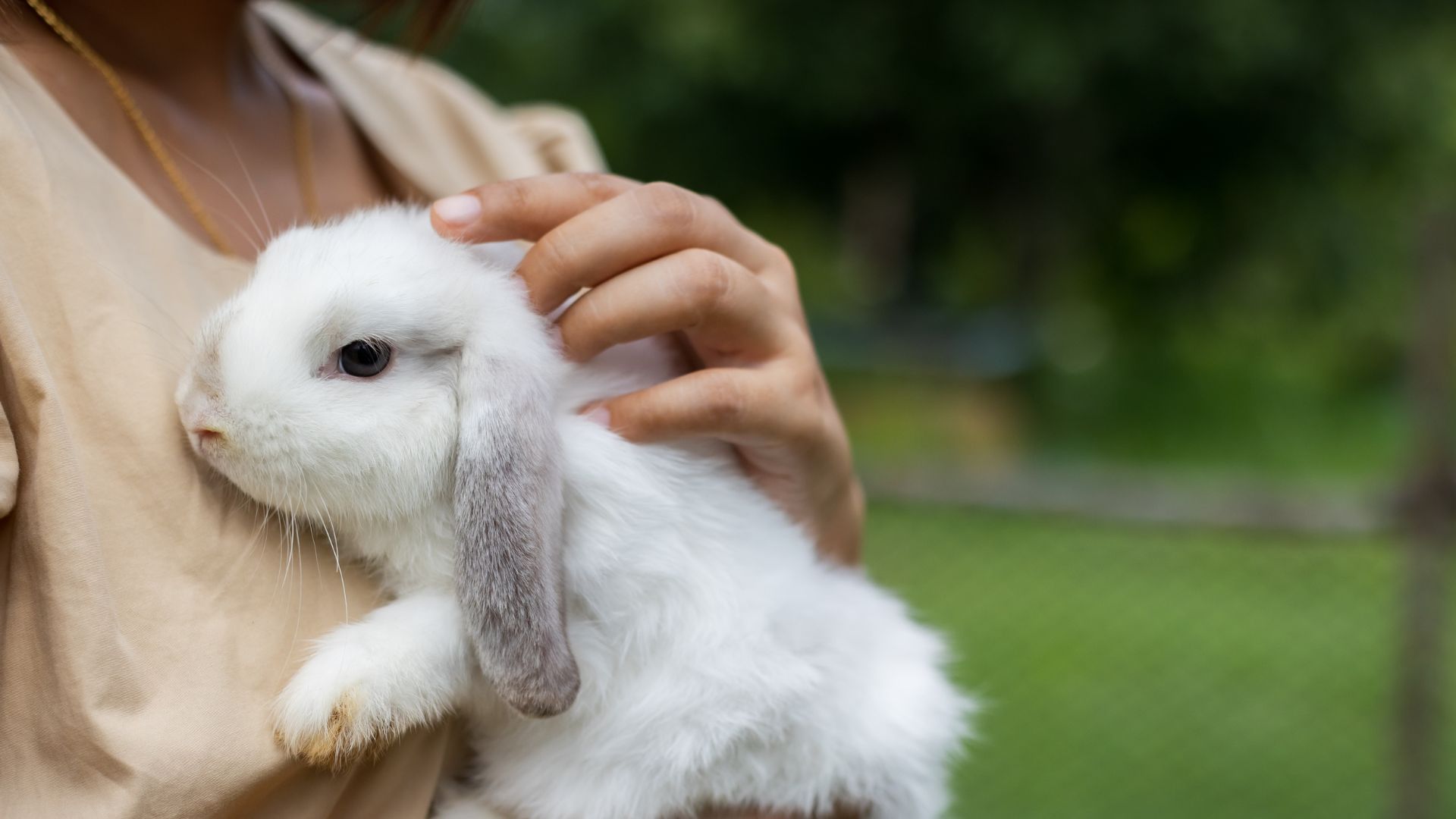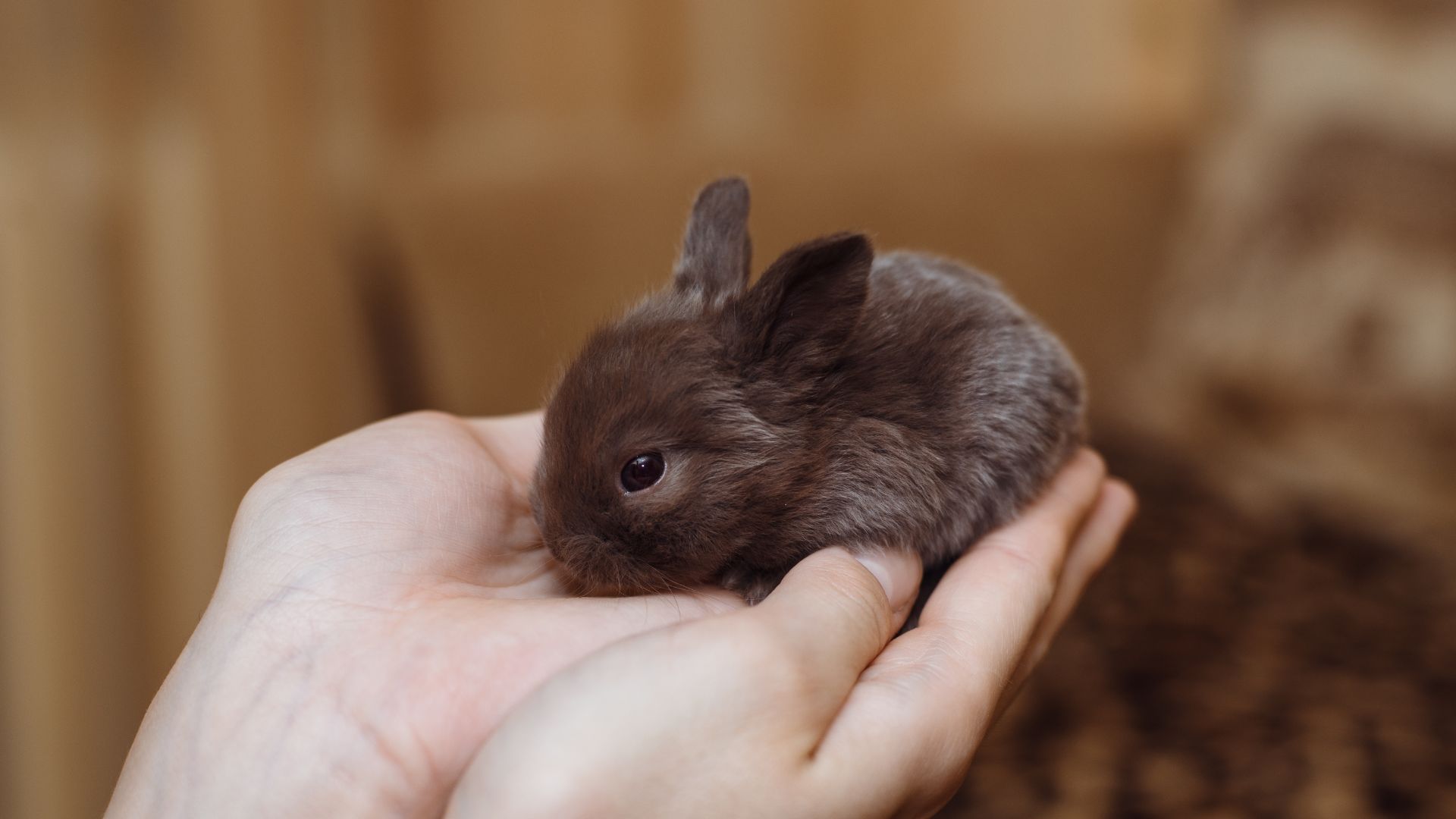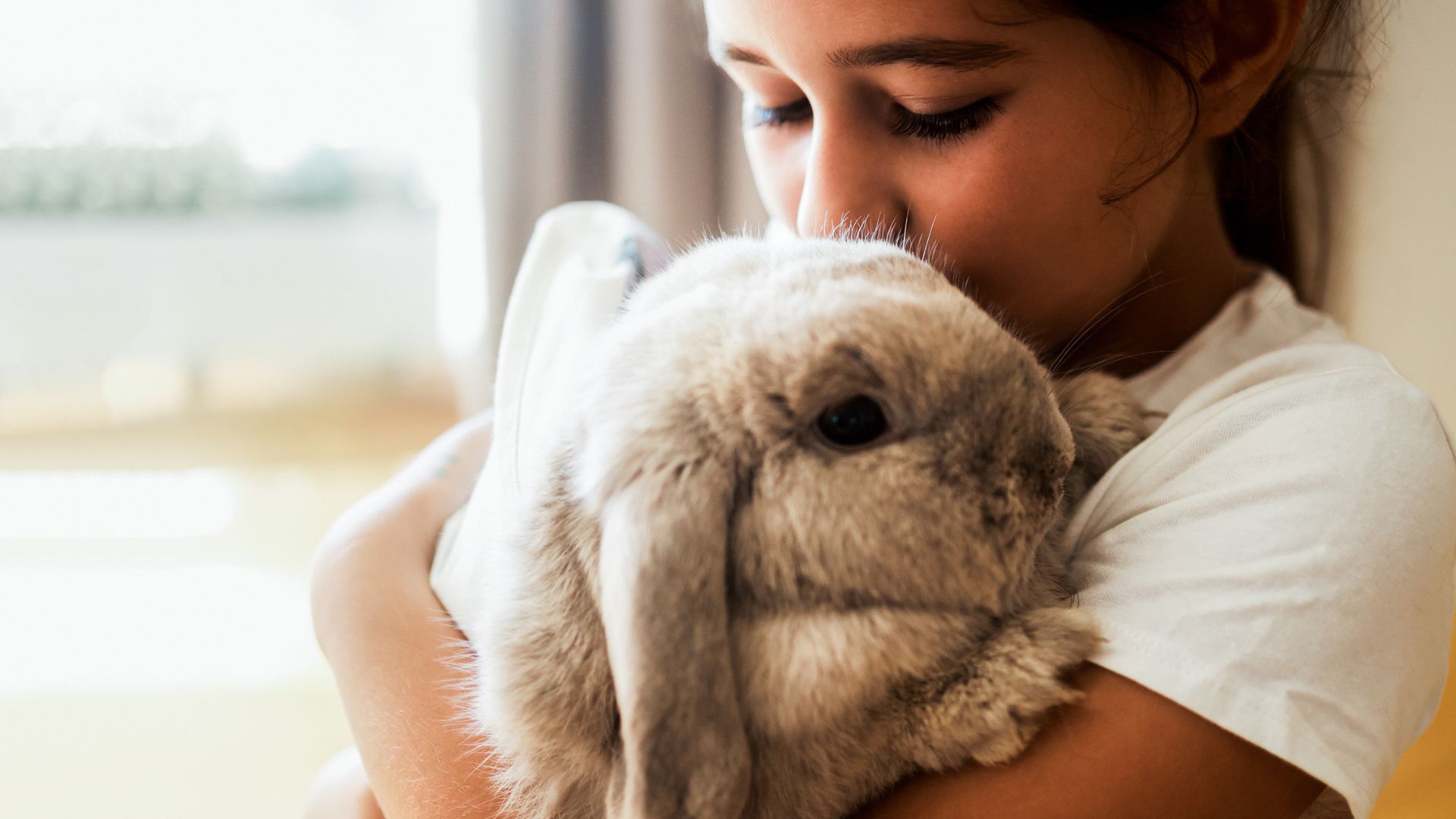
If you're thinking about getting a bunny, you might be wondering, 'How long do rabbits live?' It's something that's important to keep in mind before you commit to the responsibility.
As pet parents, we dread the day that our pets pass away and would do anything to keep them around forever. While this isn't possible, there are some things that you can do to help them live a longer, healthier and happier life, like investing in the best pet insurance and giving them the right rabbit care.
Bunnies might look like easy pets, but they require more care and attention than you might think. Not only do they need to be fed the correct diet, but they also need grooming, mental stimulation, and exercise. Plus, you'll need to keep their environment clean and have regular vet check-ups.
If you want to learn more about a pet rabbit lifespan, and how to ensure they have a good life, keep on reading. Expert vet Dr. Rebecca MacMillan has all the answers you're looking for.
How long do rabbits live?
This might come as a surprise, but pet rabbits can reach their teenage years if they're given the right care and attention. However, Dr. MacMillan says that they usually live for eight to 12 years on average.
She says: "This means rabbits are a big commitment and owners should consider this when purchasing their pet. I have encountered many owners who have bought a rabbit on a whim, not realizing how long their pet could be with them."
Domesticated rabbits live significantly longer than wild ones, who only live up to nine years old (if that!) Dr. MacMillan explains that they die a lot sooner due to environmental dangers, such as predators and disease, as well as the constant stress.

How can I help my rabbit live a long and happy life?
1. Get them vaccinated
Even if they live indoors, make sure you vaccinate your rabbit annually against myxomatosis and viral hemorrhagic diseases 1 and 2.
Dr. MacMillan says: "These viruses are fatal and can be spread through insects like flies and fleas, so any rabbit could potentially be at risk. Unfortunately, once they contract the illness there is not much that can be done to save them, which is why vaccination is so important."
2. Healthy diet
To keep your bunny happy and healthy, you'll need to feed them the correct food. Wondering what to feed a rabbit? Dr. MacMillan advises a diet that's predominantly grass and hay. Choose high-quality timothy or meadow hay and make sure they have access to it at all times.
You can also feed them a handful of leafy greens every day, she says. Whether it's dandelions, parsley, kale, or spinach, these are all safe to feed your bunny and should make up 10% of their diet. You can also feed them a tablespoon of dry pellets once or twice a day (but avoid the muesli-style mixes).
Dr. MacMillan says: "Feeding your rabbit like this will help to ensure that their teeth are kept worn down, their digestive tract stays in good order and that they are less likely to become obese."
3. Check their bottom
Flystrike can be fatal if it's not caught early, which is why you should check your rabbit's bottom regularly. If you're not sure what flystrike is, it's when maggots burrow into the skin and feed on the flesh.
Dr. MacMillan says: "I always advise rabbit owners to frequently check their rabbits' bottoms, especially during the warm summer months. Even the cleanest rabbit can get a dirty bottom occasionally and this can quickly become attractive to flies. Flies lay their eggs in warm, smelly areas."
4. Get them neutered
There are lots of reasons why you should neuter your rabbit. Not only does it reduce the risk of uterine adenocarcinoma (cancer of the womb) in females, but it also stops unwanted pregnancies.
Dr. MacMillan adds: "Neutering in both male and female rabbits can reduce sexual behaviors and make them more amenable pets."
5. Get pet insurance
If your rabbit becomes unwell, the last thing you want to worry about is an expensive medical bill. That's why it's so important to have pet insurance to help cover the costs. If you're unsure of which one to buy, here's how to choose the best pet insurance.
Dr. MacMillan says: "I strongly advise pet insurance for rabbits to help cover the costs of vet treatment if they were to ever become unwell. Insurance may mean owners can afford to access higher levels of medical care, which could lead to better patient outcomes. More and more rabbits are being referred to specialists for advanced imaging and treatment these days, so pet insurance is well worth considering."

Which rabbit breeds live the longest?
Dr. MacMillan says that larger breeds usually have a shorter lifespan in comparison to smaller breeds. However, she stresses that this isn't guaranteed and things like genetics, medical issues, and bad care are all factored into their longevity.
She adds: "A Netherland dwarf rabbit may reach 12 or 13, whereas a giant French lop may only live five to seven years. So, if you want a rabbit that is more likely to live a long time, then choose a dwarf breed."
For more bunny advice, read: How to keep a rabbit cool in summer and what do rabbits need in their cage?







